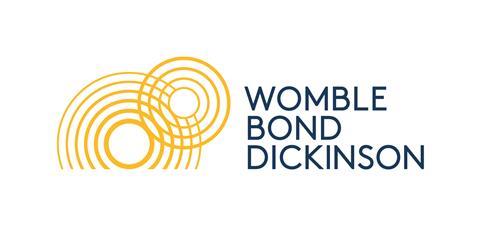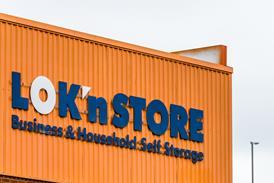There is little doubt that technological innovation has the ability to completely revolutionise the way we think about property transactions.



Digital disruption has transformed other sectors beyond recognition, giving rise to companies, products and ways of working that would have scarcely been imaginable just 10 years ago.
Despite this, parts of the property sector have been resistant to change. HM Land Registry’s state guarantee of title underpins confidence in property ownership, investment and lending, but ironically, it may be this indemnity that makes HM Land Registry cautious about adopting more permissive registration procedures.
Market participants from the private sector, including some banks, asset owners and professional advisers, have also been slow to adapt – either because of risk aversion or (up until now) an absence of incentive to change the status quo.
We should also not underestimate how prevailing norms in the legal framework underpinning UK property transactions can suppress innovation in working practices. Caveat emptor – the principle that the buyer is obliged to carry out all due diligence on a transaction – and the institutional lease are two examples of how, for very good and well-rehearsed reasons, the balance of risk is allocated in an inflexible way between the parties involved in UK real estate transactions.
Moving the industry forward to fully embrace the possibilities of new technologies may require stakeholders to accept a reassessment of that balance or to find new ways of assessing and mitigating the risks inherent in such deals.
With the outbreak of Covid-19, change in working practices is being forced through the door at a pace no one could have imagined just weeks ago. The inefficiencies of property transactions are being laid bare and the pressure is on to step away from paperwork that is difficult to create or access from out of the office and to find alternative sources of data to underpin investment decisions while physical inspections are difficult and resources among search providers are scarce.
Businesses and law firms that have moved away from manual processes carried out by office-based staff and have already invested in more automated online systems are best placed to continue their activities during the lockdown.
At Search Acumen and Womble Bond Dickinson we’re committed to being early adopters of technology, as well as encouraging greater industry collaboration, to bring about meaningful improvements to our clients and the wider sector.
As a law firm, being able to offer clients the ability to e-sign contracts has proved to be invaluable in the current circumstances, and when offices reopen we expect clients will continue to want the freedom of being able to sign contracts at any time anywhere in the world. It seems likely that this will apply to many of the new ways of working being introduced in response to Covid-19.
Wave one: process improvement
Driven by the desire to provide a better service to clients, the first wave of innovation will take place within professional services firms themselves. Womble Bond Dickinson among others is leading the charge and investing heavily in technology to streamline processes and add value to client interactions.
Widely adopted document comparison tools have already sped up the process of reviewing a series of similar documents – for example examining leases in a property portfolio – and raising discrepancies in need of attention. As technology develops, and particularly as artificial intelligence and machine learning become more advanced, the scope for such tools to manage increasingly complex and non-standardised tasks will only increase.
New ways of identifying and reporting on risk indicators will emerge, allowing lawyers and clients to reliably and quickly focus attention on key aspects of due diligence, for example those that are most likely to lead to irrecoverable costs or disputes in the future.
Meanwhile, in the due diligence process, tools such as Search Acumen’s ForeSite commercial real estate platform are already changing the way that legal teams consume and present data. ForeSite cleverly taps into data from HM Land Registry and multiple other sources to provide property insight in seconds. Intuitive mapping produces a full picture of a plot and property that is instantly displayed on screen. It offers information on everything from leaseholders to adjoining landowners, as well as environmental information and vital data on anything that could affect development, such as public rights of way and ownership rights.
While traditional searches and due diligence may still be necessary as a follow-up, the ForeSite platform allows lawyers to give their clients early insight into potential issues or concerns with no charge or significant investment of time.
As more public and private data sets are collected and digitised, the value of such tools will continue to grow exponentially. In the future, information collected from smart buildings, smart contracts, building information modelling, digital infrastructure and third-party services, such as electric vehicle charging points and drone delivery pads, could all be incorporated in an automated search and accessed by clients in an engaging way at the touch of their fingertips.
Wave two: industry collaboration
In the second wave, innovation will move outside individual firms to new ways of working across the industry. With multiple and often risk-averse parties, such changes are by their nature more difficult to bring about, but have the potential to streamline and create vast efficiencies between market participants.
The first of these measures is greater standardisation. The more that common data standards can be established, the easier it will be for different parties to process and analyse that data. We expect common data standards to emerge across the entire transaction process.
The second step is to ensure that information can be retained in a format that can be trusted by all counterparties. It is in this area that many in the industry are looking to blockchain as a possible solution, as it could allow data from transactions to be stored securely and be accessible to multiple parties.
Sharing of data and mass collection of data will be driven by organisations managing large property portfolios with the commercial clout to require input from a range of sources. Connections and correlations between these data points will be drawn in new ways that cannot be foreseen, giving rise to new ways of rapidly assessing and predicting risk.
In a connected world such data can be updated almost in real time, providing the potential to shorten the due diligence process and speed up transaction times. However, for this to be fully realised, the matter of securing legal reliance on this data will need to be addressed.
Wave three: industry disruption
The final wave of innovation is the most transformative and involves the disruption – rather than optimisation – of existing processes, transforming the property law industry as we know it today. Once the previous measures of data capture and storage have been adopted, we see a transition in the role of property lawyers themselves.
Can (and should) caveat emptor survive in an environment where information about a property and its users can be reliably captured, stored and updated in a format that is accessible and trusted?
The enduring legislative and common law framework in the UK is unlikely to dramatically change for as long as it is fit for purpose. Legal professionals and their clients will therefore need to be at the forefront of driving change by adopting new (and perhaps untested) ways of working and new ways of allocating or underwriting risk in property transactions.
As we better understand the role that new technology, big data and artificial intelligence can play, there is no saying where its capabilities will end and the role of a human lawyer will begin.
Perhaps one day, property transactions will be possible with no material human involvement at all, but instead will be carried out between buyer and seller under the guidance of algorithms and AI making decisions based on real-time data maintained on a secure blockchain.
































No comments yet